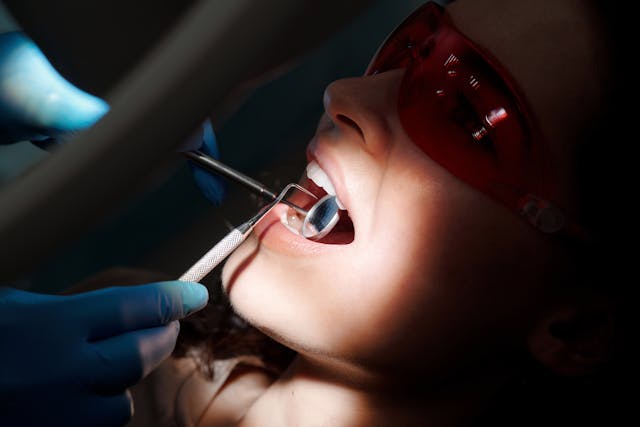Physical Address
304 North Cardinal St.
Dorchester Center, MA 02124
Physical Address
304 North Cardinal St.
Dorchester Center, MA 02124
An AI robot has performed a dental operation for the first time — eight times faster than a human doctor. We look into the developer’s plans

What is the trend?
According to the International Federation of Robotics, the average growth rate of the robotics market over the past five years is 10-11%. Robots are becoming more affordable, are beginning to perform increasingly complex tasks and assist people in many areas. One of them is dentistry.
The first stage is tomography
Automated dental treatment using Perceptive’s system begins with a 3D scan. Using optical coherence tomography, the robot builds a detailed 3D model of the oral cavity. It displays the teeth, gums, and nerves. This format of work excludes harmful X-ray radiation from the diagnostic process – within the OCT framework, only light rays are used to build models. Due to the high resolution, the probability of automatic detection of caries is about 90%
Robot functions
After the OCT, a robot surgeon takes over. Using AI, it plans the operation and then begins to perform it. One of its specialties is preparing a tooth for a crown. Dentists usually split this two-hour procedure into two visits. The robot cuts the tooth, cleans out the decay, and places the crown in 15 minutes. It can also place fillings faster than human doctors, Perceptive noted.
Successful tests
The company claims that the surgical robot can operate safely “even in challenging conditions” and takes into account possible human movements during surgery — human trials have been successful. Chris Ciriello, CEO and founder of Perceptive, notes: “We are excited to have successfully completed the world’s first fully automated dental procedure. This medical breakthrough improves access to healthcare, patient experience, and surgical outcomes.”
The Future of Dentistry
The U.S. Food and Drug Administration (the federal agency that, among other things, reviews all drugs and treatments in the country) has not yet approved the robot. It will likely be several years before the treatment becomes available.
Karim Zaklama, a general dentist and member of Perceptive’s clinical advisory board, adds: “Perceptive’s AI-powered robotic system will change dentistry. The patient experience will be improved by simplifying procedures and increasing comfort. Advanced imaging capabilities provide detail, allowing us to diagnose problems earlier with greater accuracy. The development will reduce chair time, allowing us to treat more patients.”